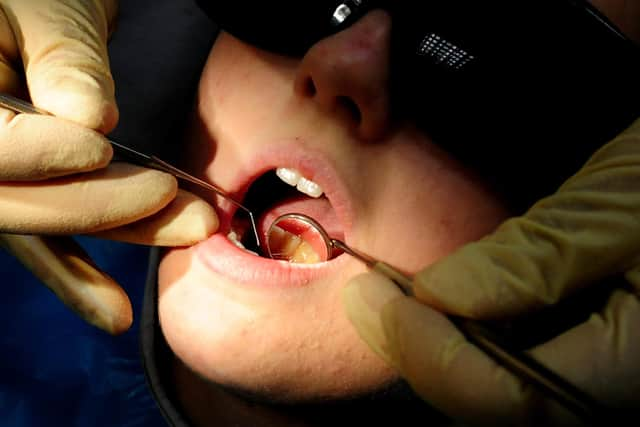One in eight year 6 children in Ashfield have tooth decay
and live on Freeview channel 276
It comes as the Royal College of Paediatrics and Child Health said the state of children's oral health is "nothing short of egregious".
Figures from the Government's annual Oral Health Survey of year 6 schoolchildren showed 13.8 per cent in Ashfield had experienced tooth decay, with those impacted experiencing decay in at least two teeth on average.
Advertisement
Advertisement
This is below with the national average for the cohort – 16.2 per cent.


Eddie Crouch, chairman of the British Dental Association, said ministers have "failed to grasp that decay and deprivation go hand in hand".
He said: "This Government likes to talk about prevention but has offered nothing. It has promised access for all but looks set to just throw money at target seats in rural England.
"Our youngest patients are continuing to pay the price."
The figures also revealed geographical variations, with 23 per cent of children in Yorkshire and the Humber reporting tooth decay compared to 12 per cent in the South West.
Advertisement
Advertisement
In the East Midlands, 14.6 per cent of the cohort reported having tooth decay.
Dr Helen Stewart, officer for health improvement at the RCPCH, added the state of children’s oral health in England is "nothing short of egregious".
She said the link between deprivation and decay is "undeniable", as children living in lower-income areas were more than twice as likely to have tooth decay than their more affluent peers.
Separately, data from the Office for Health Improvement and Disparities showed there were 47,581 tooth extractions for patients aged under 19 across NHS hospitals in England.
Advertisement
Advertisement
About two-third of these extractions – or 31,165 – were down to a primary diagnosis of tooth decay, up 17 per cent from the previous 12 months.
In Ashfield, there were about 25 total hospital admissions in Ashfield for children's tooth extraction in the year to March 2023.
It was down from the 40 extractions recorded the year before.
Exact figures on extractions due to tooth decay were not available for the area.
Advertisement
Advertisement
Overall, the rate of tooth extractions in Ashfield was 87 per 100,000 children – below the national rate of 360 per 100,000.
David Fothergill, chairman of the Local Government Association’s Community Wellbeing Board, said: "These stark figures reveal that a lack of access to affordable dentistry is having a worrying impact on the state of children’s teeth.
"The fact that, due to the severity of the decay, on average 119 operations are taking place each day to remove decaying teeth in children and teenagers is concerning and also adds to current pressures on our health service.
"Untreated dental care remains one of the most prevalent diseases affecting children and young people’s ability to speak, eat, play and socialise."
Advertisement
Advertisement
A Department of Health and Social Care spokesperson said: "Access to dentistry is improving, and last year around 800,000 more children saw an NHS dentist."
They added £3bn is invested each year to deliver NHS dentistry and plans have been announced to increase dental training places by 40 per cent.
"We are also taking preventative measures, such as expanding water fluoridation schemes to reduce the number of children experiencing tooth decay," they said.
